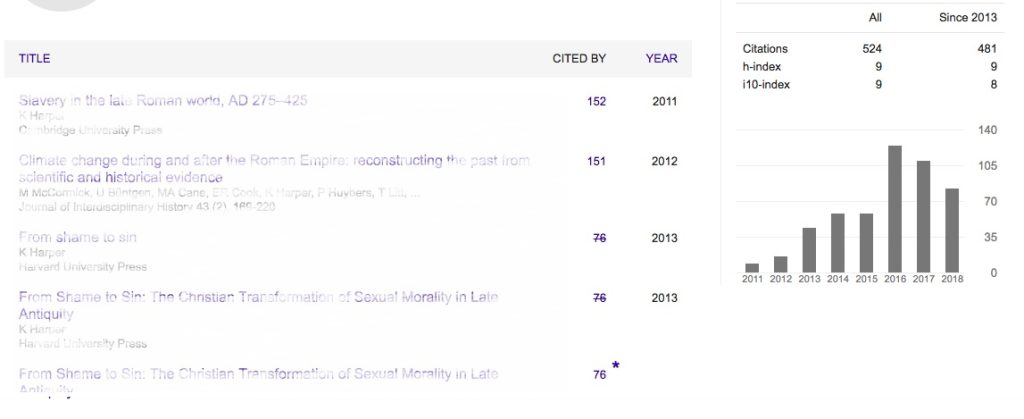google scholar and its importance
In the vast expanse of the digital era, accessing academic knowledge has undergone a transformative shift. Among the myriad tools that facilitate this shift, Google Scholar stands as a beacon for scholars, researchers, and students alike. In this article, we delve into the realm of Google Scholar and its importance, exploring its features, advantages, and the pivotal role it plays in the world of academic discovery.
Understanding Google Scholar:
Google Scholar is a specialized search engine designed to scour scholarly articles, theses, conference papers, patents, and academic publications. Launched by Google in 2004, it has evolved into a comprehensive repository, indexing scholarly content from various disciplines across the globe.
Key Features of Google Scholar:
- Broad Content Inclusion: Google Scholar indexes a diverse range of scholarly content, including articles, theses, books, conference papers, and patents. This breadth makes it a one-stop platform for comprehensive academic research.
- Author Profiles: Authors can create profiles on Google Scholar, allowing them to showcase their publications, citation metrics, and h-index. This feature enhances the visibility of researchers and fosters academic networking.
- Citation Tracking: One of the pivotal features is its ability to track citations. Researchers can see who has cited their work, enabling them to gauge the impact and influence of their contributions in the academic community.
- Alerts and Notifications: Users can set up email alerts for specific keywords, authors, or publications. This feature keeps researchers informed about the latest developments in their field, ensuring they stay abreast of relevant literature.
- Integration with Libraries: Google Scholar seamlessly integrates with institutional libraries, providing users with direct access to full-text articles if their institution has a subscription. This fosters streamlined access to scholarly resources.

The Importance of Google Scholar:
- Accessibility and Open Access: Google Scholar plays a pivotal role in promoting open access to scholarly literature. It serves as a gateway for researchers to discover open-access articles, fostering the dissemination of knowledge without barriers.
- Comprehensive Literature Review: For scholars embarking on literature reviews, Google Scholar offers a comprehensive platform to explore a vast array of academic resources. Its search algorithms prioritize relevance, aiding researchers in uncovering pertinent literature.
- Visibility and Academic Recognition: Authors benefit from the increased visibility provided by Google Scholar. Having a profile ensures that their work is easily discoverable, contributing to their academic recognition and potentially attracting collaboration opportunities.
- Citation Metrics for Impact Assessment: The citation tracking feature empowers researchers to assess the impact of their work. It provides quantitative data on how often their publications are cited, offering insights into their scholarly influence.
- Stay Updated with Alerts: Google Scholar’s alert system is a valuable tool for researchers aiming to stay updated on the latest research in their field. By receiving timely alerts, scholars can remain informed about emerging trends and breakthroughs.
Best Practices for Using Google Scholar:
- Refine Search Queries: Utilize advanced search operators to refine your queries. This includes using quotation marks for exact phrases, excluding terms with a minus sign, and employing site-specific searches.
- Utilize Library Links: Connect Google Scholar with your institution’s library to access full-text articles. This ensures that you can retrieve scholarly content seamlessly, especially if your institution has subscription access.
- Create a Google Scholar Profile: For academics, establishing a Google Scholar profile is a strategic move. Populate your profile with accurate information about your publications to enhance your visibility within the academic community.
- Set Up Alerts: Take advantage of the alert system to receive notifications about new publications, citations, or research in your field of interest. This keeps you informed and facilitates proactive engagement with emerging literature.
Google Scholar stands as a cornerstone in the academic landscape, revolutionizing the way researchers access and engage with scholarly content. Its far-reaching impact extends from simplifying literature reviews to providing a platform for academic visibility. As the scholarly universe continues to expand, Google Scholar remains an indispensable guide for those navigating the realms of knowledge and discovery.
In the vast expanse of the digital era, accessing academic knowledge has undergone a transformative shift. Among the myriad tools that facilitate this shift, Google Scholar stands as a beacon for scholars, researchers, and students alike. In this article, we delve into the realm of Google Scholar, exploring its features, advantages, and the pivotal role it plays in the world of academic discovery.
Understanding Google Scholar:
Google Scholar is a specialized search engine designed to scour scholarly articles, theses, conference papers, patents, and academic publications. Launched by Google in 2004, it has evolved into a comprehensive repository, indexing scholarly content from various disciplines across the globe.
Key Features of Google Scholar:
- Broad Content Inclusion: Google Scholar indexes a diverse range of scholarly content, including articles, theses, books, conference papers, and patents. This breadth makes it a one-stop platform for comprehensive academic research.
- Author Profiles: Authors can create profiles on Google Scholar, allowing them to showcase their publications, citation metrics, and h-index. This feature enhances the visibility of researchers and fosters academic networking.
- Citation Tracking: One of the pivotal features is its ability to track citations. Researchers can see who has cited their work, enabling them to gauge the impact and influence of their contributions in the academic community.
- Alerts and Notifications: Users can set up email alerts for specific keywords, authors, or publications. This feature keeps researchers informed about the latest developments in their field, ensuring they stay abreast of relevant literature.
- Integration with Libraries: Google Scholar seamlessly integrates with institutional libraries, providing users with direct access to full-text articles if their institution has a subscription. This fosters streamlined access to scholarly resources.
The Importance of Google Scholar:
- Accessibility and Open Access: Google Scholar plays a pivotal role in promoting open access to scholarly literature. It serves as a gateway for researchers to discover open-access articles, fostering the dissemination of knowledge without barriers.
- Comprehensive Literature Review: For scholars embarking on literature reviews, Google Scholar offers a comprehensive platform to explore a vast array of academic resources. Its search algorithms prioritize relevance, aiding researchers in uncovering pertinent literature.
- Visibility and Academic Recognition: Authors benefit from the increased visibility provided by Google Scholar. Having a profile ensures that their work is easily discoverable, contributing to their academic recognition and potentially attracting collaboration opportunities.
- Citation Metrics for Impact Assessment: The citation tracking feature empowers researchers to assess the impact of their work. It provides quantitative data on how often their publications are cited, offering insights into their scholarly influence.
- Stay Updated with Alerts: Google Scholar’s alert system is a valuable tool for researchers aiming to stay updated on the latest research in their field. By receiving timely alerts, scholars can remain informed about emerging trends and breakthroughs.
Best Practices for Using Google Scholar:
- Refine Search Queries: Utilize advanced search operators to refine your queries. This includes using quotation marks for exact phrases, excluding terms with a minus sign, and employing site-specific searches.
- Utilize Library Links: Connect Google Scholar with your institution’s library to access full-text articles. This ensures that you can retrieve scholarly content seamlessly, especially if your institution has subscription access.
- Create a Google Scholar Profile: For academics, establishing a Google Scholar profile is a strategic move. Populate your profile with accurate information about your publications to enhance your visibility within the academic community.
- Set Up Alerts: Take advantage of the alert system to receive notifications about new publications, citations, or research in your field of interest. This keeps you informed and facilitates proactive engagement with emerging literature.
Google Scholar stands as a cornerstone in the academic landscape, revolutionizing the way researchers access and engage with scholarly content. Its far-reaching impact extends from simplifying literature reviews to providing a platform for academic visibility. As the scholarly universe continues to expand, Google Scholar remains an indispensable guide for those navigating the realms of knowledge and discovery.
In the vast ocean of information available on the internet, Google Scholar stands out as a specialized navigator, guiding researchers, academics, and knowledge seekers through the intricate currents of scholarly literature. Let’s embark on a journey to uncover the specialties that make Google Scholar an indispensable tool in the world of academia.
1. Comprehensive Scholarly Indexing:
Google Scholar specializes in indexing an extensive array of scholarly content. From peer-reviewed journal articles and conference papers to theses, patents, and academic books, it serves as a centralized repository for a diverse range of scholarly materials. This inclusivity makes it a go-to platform for comprehensive academic research.
2. Authoritative Citations and Metrics:
One of the distinctive features of Google Scholar is its emphasis on citation tracking. The platform provides a meticulous record of how often a particular scholarly work has been cited by other researchers. This citation metric, coupled with the h-index and author profiles, offers insights into the impact and influence of academic publications.
3. User-Friendly Interface:
Google Scholar is renowned for its user-friendly interface. The simplicity of its design, coupled with advanced search capabilities, ensures that users can navigate through a sea of scholarly literature with ease. The intuitive nature of the platform enhances the overall user experience, making academic exploration accessible to researchers at all levels.
4. Integration with Institutional Libraries:
A noteworthy specialty of Google Scholar is its seamless integration with institutional libraries. For users affiliated with educational institutions, Google Scholar can provide direct access to full-text articles if their institution has a subscription. This integration enhances accessibility to scholarly resources and streamlines the research process.
5. Alerts for Timely Updates:
Keeping researchers abreast of the latest developments in their field is a distinctive feature of Google Scholar. The platform allows users to set up email alerts for specific keywords, authors, or publications. This ensures that scholars receive timely notifications about new research, facilitating ongoing engagement with the scholarly community.
6. Open Access Advocacy:
Google Scholar is a proponent of open access to scholarly literature. It actively promotes the discovery of open-access articles, theses, and research papers. This commitment to breaking down barriers to knowledge aligns with the broader movement toward making academic information freely accessible to the global community.
7. Author Profiles for Academic Networking:
Academic networking receives a specialized boost through Google Scholar’s author profiles. Researchers can create and manage profiles showcasing their publications, citation metrics, and research interests. This not only enhances the visibility of scholars within their academic community but also fosters connections and collaborations.
8. Advanced Search Capabilities:
Google Scholar’s advanced search features are tailored for scholarly exploration. Researchers can refine their searches using specific operators, include/exclude keywords, and conduct site-specific searches. These advanced capabilities empower users to pinpoint relevant literature efficiently.
9. International Scholarly Coverage:
A distinctive specialty of Google Scholar is its commitment to international coverage. It indexes scholarly content from institutions and researchers around the world, ensuring a global perspective in academic research. This inclusivity contributes to a diverse and enriched scholarly landscape.
In conclusion, the specialties of Google Scholar collectively position it as a lighthouse in the vast sea of academic information. Its commitment to comprehensive indexing, citation tracking, user-friendly interface, and global inclusivity makes it an invaluable tool for researchers navigating the complexities of scholarly exploration. As Google Scholar continues to evolve, it remains a beacon guiding scholars toward new horizons in the pursuit of knowledge.

10. Researcher Rankings:
Google Scholar provides a ranking system for researchers based on the impact of their work. The h-index, a metric that combines an author’s productivity and citation impact, is prominently featured on researcher profiles. This ranking system offers a quick snapshot of an author’s scholarly influence.
11. Metrics for Journals:
In addition to individual author metrics, Google Scholar assigns metrics to journals as well. Journals are ranked based on the h5-index and h5-median, providing insights into the overall influence and citation patterns of the publications they host. This feature aids researchers in assessing the credibility and impact of journals in their field.
12. Integration with Google Library:
Google Scholar seamlessly integrates with Google Library, allowing users to save and organize their scholarly findings. This integration streamlines the research process by providing a centralized location for researchers to manage their saved articles and citations.
13. Interdisciplinary Coverage:
One of Google Scholar’s specialties is its interdisciplinary coverage. It spans a wide range of academic disciplines, breaking down traditional silos and enabling researchers to explore connections and insights across diverse fields. This interdisciplinary approach fosters a holistic understanding of complex research questions.
14. Full-Text Search within Documents:
Google Scholar allows users to perform full-text searches within the body of documents. This feature is particularly powerful for researchers seeking specific information within articles, theses, or books. It saves time and enhances precision in extracting relevant content.
15. Historical and Patents Search:
Beyond traditional scholarly literature, Google Scholar specializes in providing access to historical sources and patent databases. Researchers can explore historical publications and patent filings, broadening the scope of their investigations and contributing to a more comprehensive understanding of a topic.
16. Mobile Accessibility:
Recognizing the increasing reliance on mobile devices, Google Scholar is optimized for mobile accessibility. Researchers can conveniently access scholarly content on their smartphones or tablets, ensuring flexibility in how and where they engage with academic literature.
17. Multilingual Search Capabilities:
Google Scholar’s search capabilities extend to multiple languages, making it a valuable tool for researchers working in diverse linguistic environments. The platform’s multilingual support enhances inclusivity and accessibility for scholars around the world.
18. Integration with Google Workspace:
Google Scholar seamlessly integrates with other Google Workspace tools, allowing researchers to export citations to Google Docs or manage their academic workflow through Google Drive. This integration enhances collaboration and document management for researchers using Google’s suite of productivity tools.
19. Transparent Metrics Calculation:
Google Scholar provides transparency in its metrics calculation. Users can view the sources and citations contributing to an author’s h-index or a journal’s h5-index. This transparency enhances the credibility of the metrics and allows researchers to make informed decisions based on the data provided.
20. Support for Institutional Repositories:
In addition to indexing content from traditional publishers, Google Scholar supports institutional repositories. This means that research outputs from universities and research institutions are included, increasing the visibility of diverse scholarly contributions.
In essence, the specialties of Google Scholar extend beyond being a search engine; it serves as a dynamic hub for academic exploration, collaboration, and discovery. As researchers navigate the ever-expanding landscape of scholarly literature, Google Scholar remains a steadfast companion, offering a myriad of tools and features tailored to the unique needs of the academic community.






